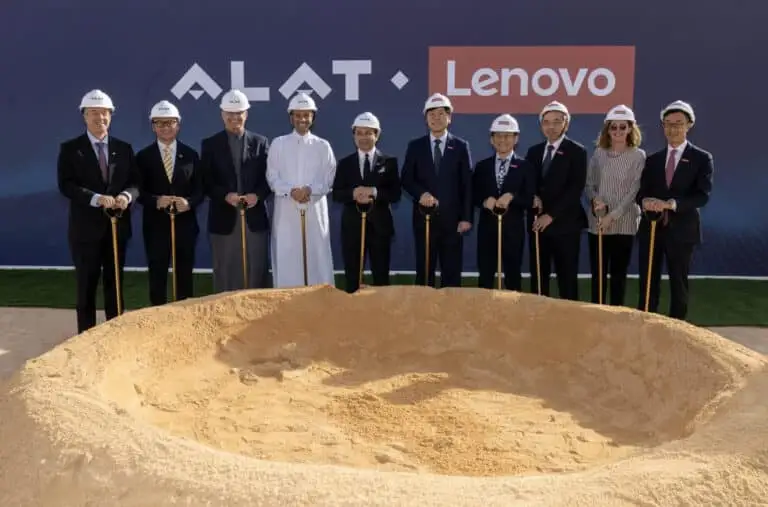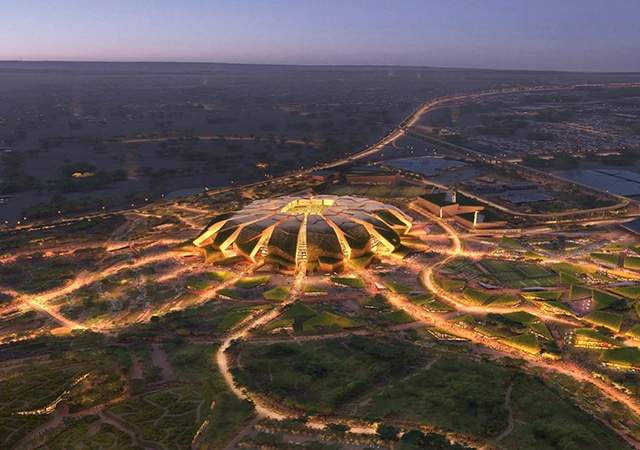In a strategic move to enhance Kuwait’s position as a regional logistics and trade hub, the Kuwaiti government and China State Construction and Communications (CSCC) signed a significant agreement to complete the Mubarak Al-Kabeer Port project. This initiative is part of Kuwait Vision 2035, which aims to diversify the economy and reduce reliance on oil. This article highlights the key aspects of the project, including its cost, location, economic objectives, cooperation with China, and anticipated challenges. A comprehensive analysis of the project’s impact on Kuwait’s future economy is also provided.

1. Project Details and Strategic Importance
Mubarak Al-Kabeer Port is located on the eastern side of Bubiyan Island, spanning an area of 1,161 hectares, making it one of the largest development projects in Kuwait’s history.With an estimated cost of 990 million Kuwaiti Dinars (approximately $3.25 billion), the port will handle 8.1 million containers annually upon completion.
Project Objectives
- Transform Kuwait into a regional logistics and trade hub.
- Reduce dependence on oil as the primary source of income.
- Create new job opportunities for citizens, with an estimated 8,550 jobs expected to be generated.
2. Timeline and Challenges
The project has been ongoing for several years but faced numerous challenges, including:
- Regional instability.
- Delays caused by the COVID-19 pandemic.
However, the new agreement with the Chinese side promises to accelerate progress, with the project expected to be completed by the end of 2026.
| Element | Details |
|---|---|
| Location | Eastern side of Bubiyan Island |
| Area | 1,161 hectares |
| Cost | 990 million Kuwaiti Dinars ($3.25 billion) |
| Expected Capacity | 8.1 million containers |
| Completion Deadline | End of 2026 |

3. Cooperation with China and the Role of the Belt and Road Initiative
The collaboration with China reflects a strategic partnership between the two nations, aligning with China’s “Belt and Road Initiative” (BRI). The BRI aims to enhance trade and infrastructure connectivity across Asia, the Middle East, and Europe.
Through this partnership, Kuwait seeks to achieve its developmental goals while supporting China’s global economic expansion. In an official statement, China’s Minister of Commerce remarked: “Our cooperation with Kuwait underscores our shared commitment to sustainable development.”
(Source: Ministry of Commerce of the People’s Republic of China)
4. Economic and Social Impact
Economic Diversification
Mubarak Al-Kabeer Port will play a pivotal role in reducing Kuwait’s reliance on oil by opening doors to new sectors such as maritime transport and logistics.
Job Creation
By providing 8,550 job opportunities, the project will significantly improve living standards and contribute to achieving social development goals.
Boosting Regional Trade
With its strategic location, the port will connect Gulf countries to global markets, enhancing Kuwait’s role as a key player in international trade.

ArchUp Opinion: Analysis and Critique
Despite its significance, there are several points worth discussing:
Advantages
- The project represents a major step toward achieving Kuwait Vision 2035.
- Collaboration with China ensures advanced construction technologies and strengthens bilateral relations.
Challenges
- Delays in execution could lead to increased costs.
- Ensuring the sustainability of operations post-completion is crucial, especially amid regional competition.
Recommendations
- Focus on long-term planning for efficient port management.
- Provide training programs for citizens to prepare them for roles in the logistics sector.

5. Frequently Asked Questions (FAQ)
Where is Mubarak Al-Kabeer Port located?
The port is located on the eastern side of Bubiyan Island.
What is the cost of the project?
The project is estimated to cost approximately 990 million Kuwaiti Dinars.
When will the project be completed?
The project is expected to be completed by the end of 2026.
What are the main objectives of the project?
The objectives include economic diversification, reducing oil dependency, and enhancing regional trade.
6. Summary Table of Key Points
| Element | Details |
|---|---|
| Project Name | Mubarak Al-Kabeer Port |
| Location | Eastern side of Bubiyan Island |
| Area | 1,161 hectares |
| Cost | 990 million Kuwaiti Dinars |
| Expected Capacity | 8.1 million containers |
| Main Objectives | Economic diversification, job creation, trade enhancement |
| Completion Deadline | End of 2026 |
| International Cooperation | Partnership with China under the Belt and Road Initiative |

In Conclusion , Mubarak Al-Kabeer Port represents a pivotal step toward achieving sustainable development in Kuwait. However, the project’s success hinges on effective implementation and the ability to address future challenges.







